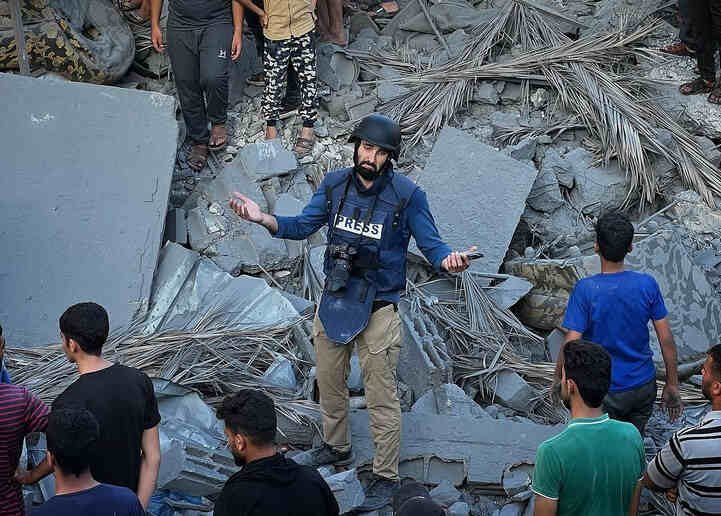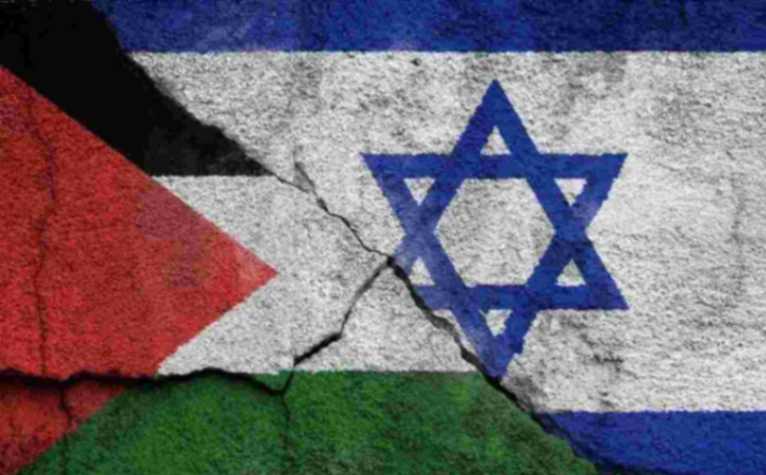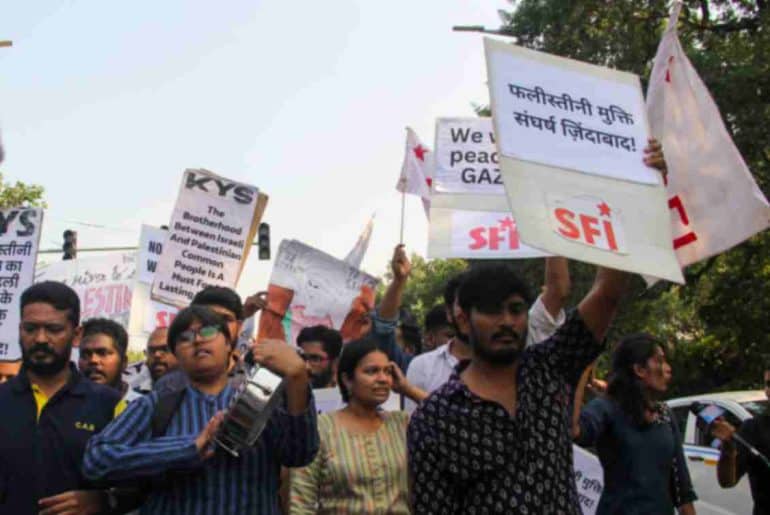Colonisation in its essence is violent. With the erasure of their colonial histories, the post colonial countries play right into the hands of the imperialist West and advance their ideology. The ongoing decolonial struggle led by the Axis of Resistance challenges Western narratives and highlights the hypocrisy of global responses to oppression.
Colonialism is easily brushed off as a historical event, a relic of the past. But the world, as we see it today, is shaped by the violent systems and processes that once governed empires and still govern the lives of many today. The global West perpetuates the exploitation of the indigenous people for political and economic gains. After a year of witnessing the moral degradation of the West and its impudence in aiding and abetting a settler-colonial force in committing genocide, the expectations of non-violent retaliation from the victims of oppression are just a means to preserve the interests of the colonialist state. Turning the Indigenous lands into graveyards while the international community continues to turn a blind eye showcases the sheer hypocrisy of the world we live in and the rules that govern it.
The “axis of resistance” is a coalition of Iranian-backed groups like Hezbollah, Hamas, the Palestinian Islamic Jihad (PIJ), and the Houthis that has been holding up the decolonial struggle in the Middle East. However, the axis is called an “axis of evil” because it threatens the settler-colonialism of Israel and the presence of America in the Middle East. The Western liberals denounce this resistance as a terrorist entity that dared to use violence against the aggressive colonial forces.
After the killing of Hassan Nasrallah, the general secretary of Hezbollah, on September 27 in an Israeli airstrike in a southern suburb of Beirut, a series of protests erupted all around the world, mourning his death. Considered the flagbearer of resistance in the Middle East, Nasrallah was a dominant political and military figure for more than three decades who led the war against Israel and brought an end to the 18-year-long Israeli occupation of southern Lebanon. This has led to the escalation in the conflict in the Middle East and the narrative of ‘World War 3’ is being propagated, which, as exaggerated as it is, is also seemingly harmful to the Palestinian resistance.
The war between Israel, its Western allies, and the Axis of Resistance is a decolonial struggle, not an inter-imperialist conflict. While imperialist wars, i.e., world wars, involve rival capitalist powers fighting for dominance, this war is about dismantling the settler-colonial entity itself. It’s about ending the occupation of Palestine and resisting Western imperialism. The Axis of Resistance, in spite of what the Western world says, fights for liberation and self-determination. Conflating the two shields the reality of colonial oppression and ignores the just cause of decolonisation that the Palestinian Resistance and their allies are fighting for.
“All the western nations are caught in a lie, the lie of their pretended humanism; this means that their history has no moral justification and that the West has no moral authority.” says James Baldwin, an African American writer and a civil rights activist.
The Western liberals for a year have been championing a ceasefire and sympathising with the Palestinian people. Their peaceful solutions to the ongoing genocide are embedded in the international structure, which has its roots in white supremacy.
“Get this into your head: if violence were only a thing of the future, if exploitation and oppression never existed on earth, perhaps displays of nonviolence might relieve the conflict. But if the entire regime, even your nonviolent thoughts, is governed by a thousand-year-old oppression, your passiveness serves no other purpose but to put you on the side of the oppressors.”
says Frantz Fanon in his seminal work The Wretched of the Earth.
“Colonialism is not a machine capable of thinking, a body endowed with reason. It is naked violence and only gives in when confronted with greater violence.” he adds
Decolonisation is not an abstract concept. It is a means of survival for people crushed under colonial and imperial forces. Non-violent resistance, used as rhetoric that decolonisation is possible without any form of violence, actually acts as a preservation of the capitalist colonial structure and empowers the elites of the state.
India and other post-colonial countries, even with their histories, have tried to maintain a cordial relationship with Israel. It’s a stark example of how being postcolonial does not mean becoming decolonial altogether. The erasure of the colonial memory and the evil that imperialism is shows the failure to decolonise the country from the imperialist ideology. The collective stigma against the Axis of resistance as an aggressor plays into the hands of the Western imperialists to justify their ongoing support for Israel under the guise of the “right to defend itself,” which the colonised people don’t have. Presenting themselves as “defenders of peace,” the West obscures the reality that it is Western interventionism and not the actions of the decolonising forces that perpetuate violence in the region. The failure to acknowledge the Axis as a resisting force against settler colonialism and Western imperialism also stems from the deep-rooted Islamophobia that refuses to see the Islamic Resistance in the Middle East as anything other than a force of terror.
Since 7th October 2023, the death toll in Lebanon has reached 2,000, and 9,384 are injured, according to the Lebanese Health Ministry. In Gaza, the genocide continues as the death toll nears 41,900 people. Israel is yet to be condemned for any of its actions by the international community. Perhaps the oppressed need to be moderate in their anger—maybe they’re expected to wait until the Western world finally recognises its own atrocities.
But here’s the thing: no amount of non-violence on the part of the native people changes the violence embedded in the colonial system itself. The machinery of oppression doesn’t stop because those being oppressed choose peace. Colonial structures thrive on domination, and they don’t crumble simply because the oppressed resist passively.
Read Also: All Lenses on Gaza: Digital Activism and the Palestinian Resistance
Image Credits: Andreas Arnold via Getty Images
Reeba Khan




